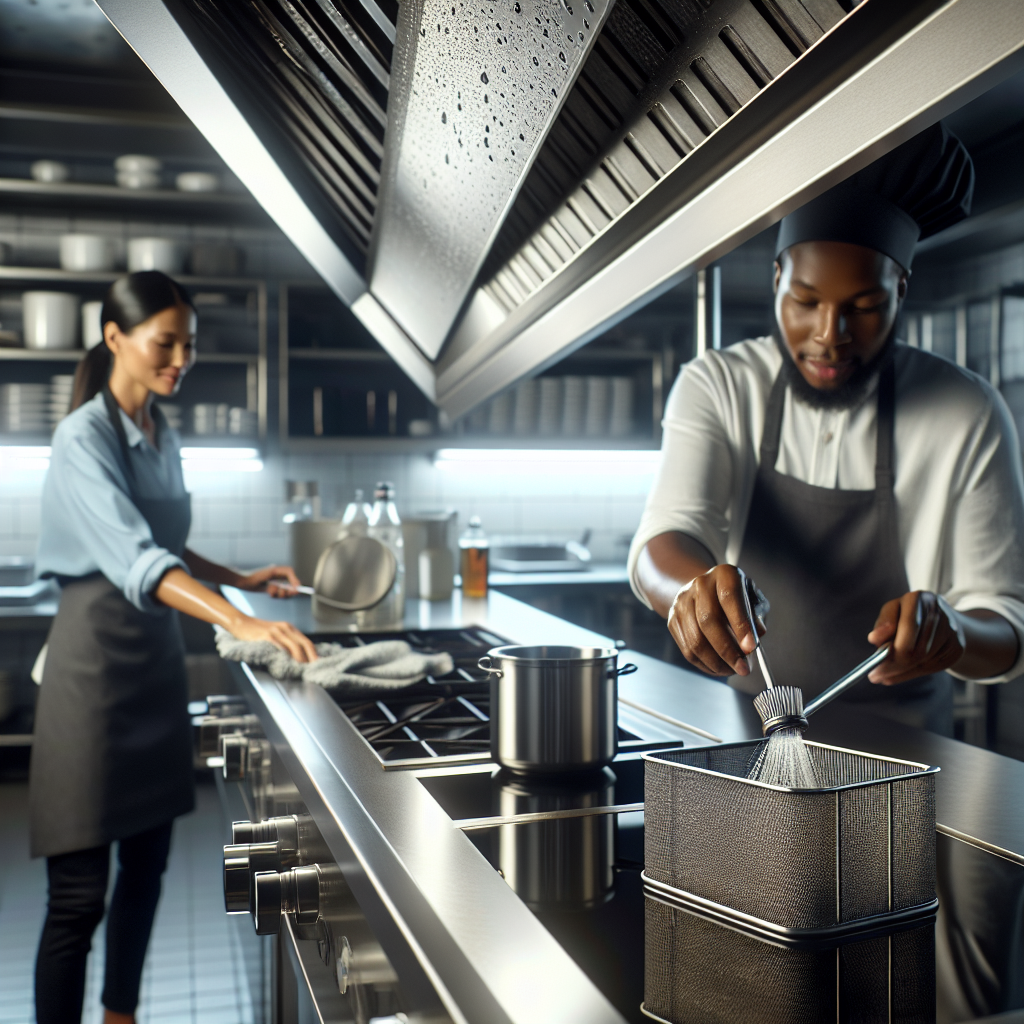Enhancing Kitchen Safety with Grease Traps and Hood Cleaning
The Critical Role of Grease Traps in Hood Cleaning
When it comes to running a successful restaurant or managing a commercial kitchen, cleanliness is not just an option—it’s a necessity. Among the various elements that demand attention, the cleaning of grease traps and hoods play pivotal roles. Often treated as separate tasks, these two operations are in fact closely interlinked. Let’s explore how grease traps complement and enhance the effectiveness of hood cleaning, creating a cleaner kitchen environment.
Understanding Grease Traps and Their Importance
Grease traps are essential components in any commercial kitchen. These devices intercept and capture grease, fats, and oils before they enter the plumbing system. Without a properly functioning grease trap, these substances can solidify and lead to blockages, resulting in costly plumbing repairs and potential business interruptions.
Moreover, grease traps help in maintaining proper sanitation standards. By preventing grease from going down the drains, they also contribute to environmental protection, reducing the risk of pollution in public water systems.
How Grease Traps Influence Hood Cleaning
While grease traps are vital for wastewater management, they also have a significant impact on the efficiency of restaurant hood cleaning. Here’s how:
- Reducing Grease Buildup: A well-maintained grease trap lowers the amount of grease that circulates in the kitchen. This minimization helps in reducing the grease that accumulates on kitchen hoods, making the periodic commercial kitchen hood cleaning easier and more effective.
- Improving Ventilation Efficiency: With less grease being extracted and trapped in hoods, the exhaust system can function more effectively. This prevents the malfunctioning of vent motors and keeps the air in the kitchen fresh and breathable.
- Cost-Effective Maintenance: Regular grease trap cleaning enhances the longevity of kitchen hood systems. Since there’s less grease for exhaust hood cleaning, it can lead to fewer cleanings over time, saving both effort and expense.
Best Practices in Grease Trap Maintenance
To ensure that your grease traps provide the maximum benefit to your hood cleaning routine, consider these best practices:
- Regular Inspection: Conduct regular inspections of your grease traps. This includes checking for blockages, ensuring the trap is in good working condition, and verifying that it effectively captures grease.
- Scheduled Cleaning: Develop a cleaning schedule based on the usage and capacity of your restaurant. Many local regulations also dictate the frequency of cleaning to ensure compliance.
- Professional Services: Engage professional cleaning services in Jacksonville FL, as they have the expertise to perform thorough cleanings and make repairs if necessary. Proper cleaning of grease traps also ensures that your hood cleaning is more efficient.
The Link Between Clean Hoods and Safe Kitchens
It’s no secret that cleanliness is directly linked to safety in commercial kitchens. A dirty or clogged hood can pose fire risks, while improper management of airborne grease particles can lead to health hazards. Therefore, ensuring that both grease traps and hoods are clean and effectively maintained safeguards not just the employees but the entire establishment.
Properly cleaned hoods also enhance the functionality of fire suppression systems. These systems can operate unimpeded and provide optimal safety for kitchen operations by reducing fire risks associated with grease-laden vapors.
The Role of Professionals in Jacksonville FL
While some business owners opt for DIY cleaning methods, the importance of hiring professionals should not be underestimated. Experts in Jacksonville FL offer comprehensive services that include inspections, cleaning, and maintenance of both grease trap and hood cleaning. They are skilled in dealing with various types of equipment and are aware of local and federal safety standards.
Professional services also utilize advanced tools and methods that ensure deeper cleaning, resulting in reduced operating costs and enhanced kitchen efficiency.
Conclusion
In conclusion, maintaining a healthy balance between grease traps and hood cleaning is essential for the efficient operation of commercial kitchens. By reducing grease buildup and ensuring effective ventilation, the kitchen environment remains safe and compliant with health regulations. For the best outcomes, partnering with a reliable service in Jacksonville FL is key to achieving spotless kitchens and operational excellence.
To learn more about how professional services can benefit your commercial kitchen with effective hood cleaning, consider reaching out to experts who specialize in this intricate work.







